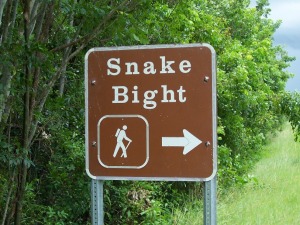SNAKE BIGHT
|
SNAKE BIGHT |
|
|
|
|
NAME: Snake Bight COUNTY: Monroe ROADS: 4WD GRID: 4 CLIMATE: hot and full of mosquitos most of the year BEST TIME TO VISIT: winter, the colder the better |
COMMENTS:
Located in Everglades National Park, marked as Snake Bight Trail on most park maps. Trail leading to Snake Bight itself is about 1.5 miles each way, with a sign on the main park road directing to it. REMAINS: old boardwalk, old roadway visible in some areas, little else |
| Inside Everglades National Park is Snake Bight, a small place more widely known for its large concentration of mosquitoes than for anything else. The term Snake Bight itself is something of a play on words; a “bight” is a bay within a bay. Before modern settlers ventured down that way the Calusa Indians lived in and around Snake Bight. Later the residents of Flamingo and visiting fishermen and hunters set up camps in the area. In the early 1900’s a canal was dug out from the bight up to the main road, with the soil used to create a road leading down there as well. Around 1940 the E. T. Knight Fish Company established a base at Snake Bight along the coastal edge of the canal. It had a fish processing plant and many huts and buildings for the men who lived and worked there. The fishing was done mostly with airboats and the flats were very shallow. Hurricanes and heavy storms have taken their toll on Snake Bight over the years, reducing the former road to a narrow overgrown trail and washing away almost all evidence to suggest anything other than mosquitoes ever lived there. Submitted by: Jim Pike |  Everglades National Park sign on the main park road
|
|
|